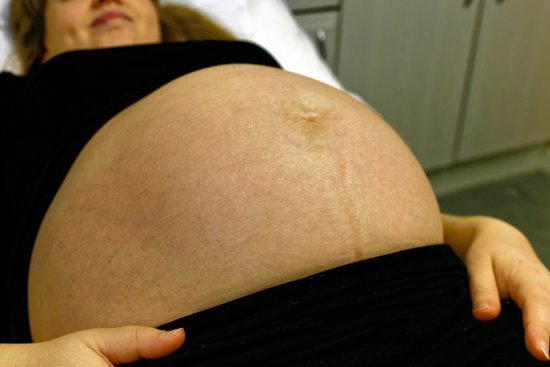Pregnancy is a crucial time for the health and development of both the mother and her baby. Making bad nutritional choices during pregnancy can have significant and long-lasting effects on both. It is imperative for expectant mothers to understand the impact that their diet can have on their pregnancy and take proactive steps to make better nutritional choices.
The food choices made during pregnancy play a critical role in ensuring the proper growth and development of the baby as well as maintaining the overall health of the mother. A poor diet can lead to a range of negative consequences, such as an increased risk of gestational diabetes, pre-eclampsia, or even complications during childbirth. Additionally, it can also impact the child’s long-term health, predisposing them to conditions such as obesity and diabetes later in life.
In this article, we will explore the various bad nutritional choices that pregnant women commonly make, their potential consequences on both mom and baby, and offer practical tips on how to make healthier dietary decisions during pregnancy. Understanding these factors is essential for expectant mothers to optimize their nutrition for a healthy pregnancy journey.
The Impact of Bad Nutritional Choices on Mom and Baby
Making poor nutritional choices during pregnancy can have significant and lasting effects on both the mother and her baby. When a pregnant woman does not consume a balanced and healthy diet, she puts herself at risk for various health problems, including an increased likelihood of gestational diabetes, high blood pressure, and excessive weight gain. These conditions can not only affect the mother’s health during pregnancy but also have long-term implications for her overall well-being.
Additionally, bad nutritional choices during pregnancy can result in adverse outcomes for the baby. Studies have shown that an unhealthy diet during pregnancy can lead to a higher risk of birth complications, such as premature birth, low birth weight, and even certain birth defects. Furthermore, infants born to mothers who made poor nutritional choices may be more susceptible to developing chronic health conditions later in life.
It is crucial for pregnant women to understand the impact that their dietary choices can have on themselves and their babies. By prioritizing nutrition throughout pregnancy, women can mitigate these risks and promote optimal health for both themselves and their children. It is never too late to make positive changes to one’s diet, even if they were initially making bad nutritional choices during pregnancy.
| Health Effect | Potential Risks |
|---|---|
| Gestational Diabetes | Increased blood sugar levels; higher risk of delivering a large baby or needing a C-section |
| Premature Birth | Potential complications due to underdeveloped organs; higher risk of long-term health issues |
| Low Birth Weight | Underweight infant with an increased susceptibility to infections and developmental delays |
Common Bad Nutritional Choices During Pregnancy
During pregnancy, making poor nutritional choices can have detrimental effects on both the mother and the developing baby. One of the most common bad nutritional choices during pregnancy is the excessive consumption of fast food and processed foods.
These types of foods are often high in unhealthy fats, added sugars, and sodium, which can contribute to excessive weight gain in the mother and increase the risk of gestational diabetes. Additionally, these foods lack essential nutrients that are crucial for fetal development, such as folate, iron, and calcium.
Excessive sugar and salt consumption are also prevalent bad nutritional choices during pregnancy. High intake of sugary foods and beverages not only increases the risk of gestational diabetes but also contributes to a higher likelihood of delivering a large baby, which can lead to complications during labor and delivery. On the other hand, consuming too much salt can result in water retention and high blood pressure, both of which pose risks to both the mother and baby.
Furthermore, nutrient deficiencies resulting from poor dietary choices during pregnancy can have serious consequences. For example, inadequate intake of iron can lead to anemia in the mother and increase the risk of preterm birth or low birth weight in the baby. Similarly, insufficient consumption of calcium can affect bone development in the fetus and increase the mother’s risk of osteoporosis later in life.
| Bad Nutritional Choices | Consequences |
|---|---|
| Excessive consumption of fast food and processed foods | Contributing to excessive weight gain in the mother; lack essential nutrients for fetal development |
| Excessive sugar and salt consumption | Risk of gestational diabetes; increased likelihood of delivering a large baby; water retention; high blood pressure |
| Nutrient deficiencies from poor dietary choices | Anemia in the mother; increase risk preterm birth or low birth weight in baby; affect bone development; increased risk osteoporosis later |
Fast Food and Processed Foods
During pregnancy, it is crucial for women to make informed nutritional choices for the health of both themselves and their babies. One common temptation that many women face is the convenience of fast food and processed foods. These options may be quick and readily available, but they often lack essential nutrients that are crucial during pregnancy.
The Lack of Nutrients in Fast Food
Fast food is typically high in unhealthy fats, refined sugars, sodium, and low in essential nutrients such as vitamins, minerals, and fiber. Consuming these types of foods can lead to excessive weight gain, which can increase the risk of complications during pregnancy such as gestational diabetes and hypertension.
The Dangers of Processed Foods
Processed foods often contain high levels of additives, preservatives, and artificial ingredients that are not beneficial for a pregnant woman or her baby. These items can also contribute to excessive calorie intake without providing the necessary nutrients for a healthy pregnancy. Regular consumption of processed foods has been linked to an increased risk of developing chronic conditions such as obesity and cardiovascular disease in both the mother and her child.
While it may be difficult to resist the convenience and affordability of fast food and processed foods, it is important for pregnant women to understand the potential dangers associated with these choices. By making a conscious effort to prioritize whole, nutrient-dense foods over fast food and processed options, women can better support their own health as well as the healthy development of their babies.
Making smarter nutritional choices during pregnancy can lead to long-term benefits for both mother and child.
The Effects of Excessive Sugar and Salt Consumption
During pregnancy, it is crucial to be mindful of excessive sugar and salt consumption, as these can have a significant impact on both the mother and the baby. Here are some effects of these nutritional choices:
1. Increased risk of gestational diabetes: Consuming high amounts of sugar during pregnancy can increase the risk of developing gestational diabetes, a condition that affects blood sugar levels during pregnancy. This can have negative consequences for both the mother and the baby, including a higher risk of preeclampsia and type 2 diabetes later in life.
2. Elevated blood pressure: Excessive salt intake can lead to elevated blood pressure, which can be particularly dangerous during pregnancy. High blood pressure increases the risk of complications such as preeclampsia, premature birth, and low birth weight in babies.
3. Water retention and swelling: Too much salt in the diet can lead to water retention and swelling, commonly known as edema. This can be uncomfortable for pregnant women and may also be a sign of preeclampsia, a serious condition that requires medical attention.
To make better nutritional choices during pregnancy, consider the following tips:
By being mindful of sugar and salt consumption during pregnancy, women can help ensure a healthier outcome for themselves and their babies. Making informed nutritional choices is essential for supporting optimal health during this critical time.
Nutrient Deficiencies and Their Consequences
During pregnancy, it is crucial for women to maintain a balanced and nutrient-rich diet in order to support their own health as well as the growth and development of their baby. Failing to do so can lead to various nutrient deficiencies, which can have serious consequences for both the mother and the unborn child. Some of the most common nutrient deficiencies during pregnancy include iron, calcium, vitamin D, and folic acid.
Iron deficiency can result in anemia, which can cause fatigue, weakness, and even an increased risk of preterm delivery or low birth weight. Calcium is essential for the development of the baby’s bones and teeth, so a deficiency can lead to issues with bone density and skeletal development.
Vitamin D is important for both the mother’s and baby’s bone health, while folic acid plays a crucial role in preventing neural tube defects in the developing fetus. Failing to address these deficiencies can have long-lasting effects on both the mother and child.
In order to prevent these consequences, pregnant women should focus on consuming a variety of nutrient-dense foods including lean proteins, dairy products, leafy greens, fruits, whole grains, and healthy fats. Additionally, taking prenatal vitamins as recommended by healthcare providers can help bridge any nutritional gaps that may occur due to dietary restrictions or aversions during pregnancy.
The Role of Healthy Fats and Proteins in Pregnancy
During pregnancy, the intake of healthy fats and proteins becomes crucial for the overall health of both the mother and the developing baby. These nutrients play a vital role in the growth and development of the fetus, as well as in supporting the mother’s changing body.
Importance of Healthy Fats
Healthy fats, such as omega-3 fatty acids, are essential for brain development and vision in the fetus. These fats also help in the formation of cell membranes and assist in the absorption of fat-soluble vitamins. Incorporating sources of healthy fats, like avocados, nuts, seeds, and fatty fish into a pregnant woman’s diet can ensure that she is meeting her nutritional needs.
The Role of Proteins
Proteins are crucial for fetal tissue growth and development, especially during the second and third trimesters. They also play a significant role in supporting the growth of the placenta. Pregnant women should aim to consume a variety of protein sources, including lean meats, poultry, fish, eggs, dairy products, legumes, and tofu to ensure they are getting an adequate amount.
In contrast to bad nutritional choices during pregnancy which can have serious consequences for both mother and baby, making sure to include healthy fats and proteins in a pregnant woman’s diet is essential for optimal health outcomes. By understanding the importance of these nutrients and incorporating them into her meals, a pregnant woman can contribute to her own well-being as well as support the healthy growth and development of her baby.
Tips for Making Better Nutritional Choices During Pregnancy
During pregnancy, making healthy nutritional choices is crucial for the well-being of both the mother and the baby. Here are some tips to help women make better nutritional choices during this important time:
- Eat a Variety of Nutrient-Dense Foods: Include a wide range of fruits, vegetables, whole grains, lean proteins, and healthy fats in your diet to ensure you are getting all the essential nutrients needed for a healthy pregnancy.
- Stay Hydrated: Drink plenty of water throughout the day to stay properly hydrated. Dehydration can lead to complications during pregnancy, so it’s important to drink enough fluids.
- Limit Processed Foods and Fast Food: Try to minimize your intake of processed foods and fast food as they tend to be high in unhealthy fats, sugars, and sodium which can have negative effects on both mom and baby’s health.
- Control Sugar and Salt Intake: Too much sugar and salt can lead to health issues like gestational diabetes and high blood pressure. It’s important to monitor your intake of these substances for a healthier pregnancy.
In addition to following these tips, it can also be helpful to seek guidance from a healthcare professional or a nutritionist who can provide personalized recommendations based on individual needs and medical history. Making positive changes towards a healthier diet during pregnancy can have long-term benefits for both mother and child.
Conclusion
In conclusion, making healthy nutritional choices during pregnancy is vital for the well-being of both the mother and the baby. As outlined in this article, bad nutritional choices during pregnancy can have serious repercussions, including increased risk of gestational diabetes, pre-eclampsia, low birth weight, and other complications.
The impact of a poor diet during pregnancy can extend into the long-term health of the child, potentially leading to an increased risk of obesity, diabetes, and other health issues later in life.
It is important to be aware of common bad nutritional choices during pregnancy, such as excessive consumption of fast food and processed foods, as well as high levels of sugar and salt intake. Additionally, nutrient deficiencies can have detrimental effects on both the mother’s health and the development of the baby.
However, by prioritizing healthy fats and proteins in one’s diet during pregnancy, it is possible to mitigate some of these risks and promote optimal health for both mother and baby.
Ultimately, making better nutritional choices during pregnancy can lead to long-term benefits for both the mother and child. By incorporating a variety of nutrient-dense foods into one’s diet and avoiding processed and unhealthy options, it is possible to support a healthy pregnancy and set the stage for a lifetime of good health for the child. It is never too late to make positive changes towards a healthier lifestyle that supports overall wellness during this critical period.
Frequently Asked Questions
What Are 3 Top Nutritional Concerns in Pregnancy?
Three top nutritional concerns in pregnancy include the need for adequate intake of folic acid to prevent birth defects, the importance of getting enough iron to support the increased blood volume and prevent anemia, and the necessity of consuming enough calcium for both the mother’s bone health and the baby’s development.
What Are the Nutritional Problems During Pregnancy?
Nutritional problems during pregnancy can include micronutrient deficiencies such as iron, folic acid, and vitamin D, inadequate weight gain due to poor diet or excessive nausea/vomiting, and potential complications from gestational diabetes if blood sugar levels are not properly managed through diet.
How Does Bad Nutrition Affect Pregnancy?
Bad nutrition during pregnancy can have serious consequences for both the mother and the developing baby. It can increase the risk of low birth weight, preterm birth, birth defects, and other health complications for the baby.
For the mother, poor nutrition can lead to anemia, fatigue, and difficulties in recovery after childbirth. Good nutrition is crucial during this time to support a healthy pregnancy and promote optimal fetal development.

Welcome to my fertility blog. This is a space where I will be sharing my experiences as I navigate through the world of fertility treatments, as well as provide information and resources about fertility and pregnancy.





